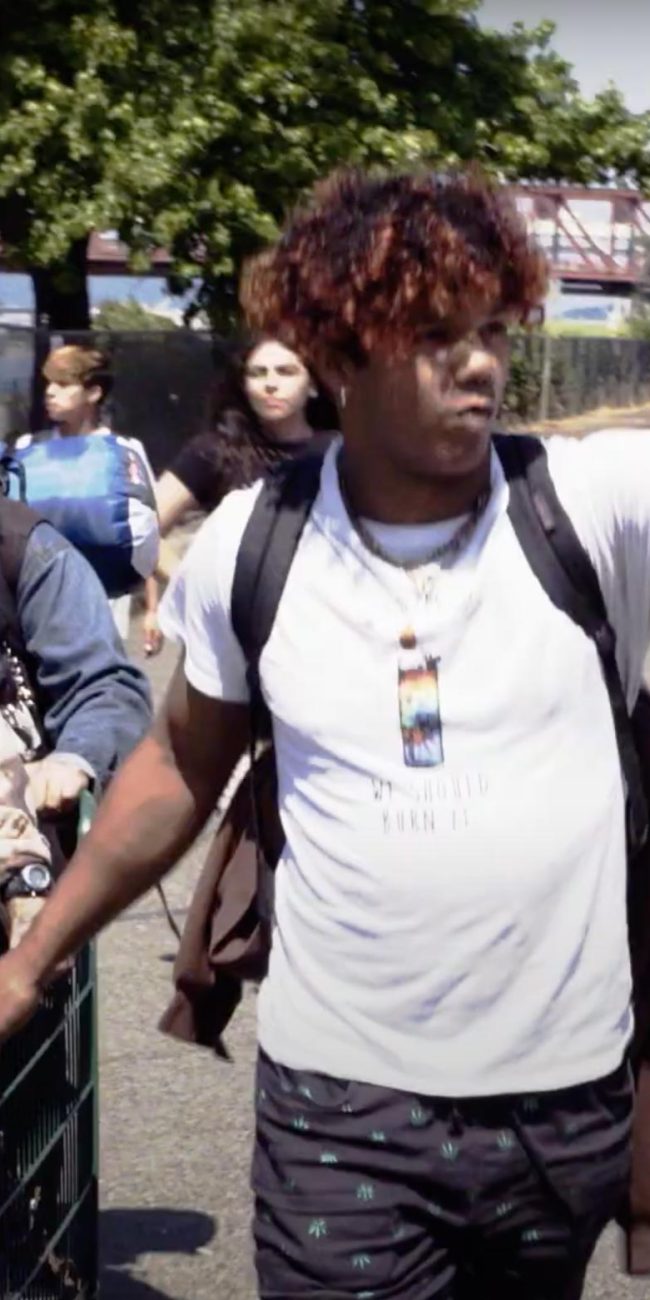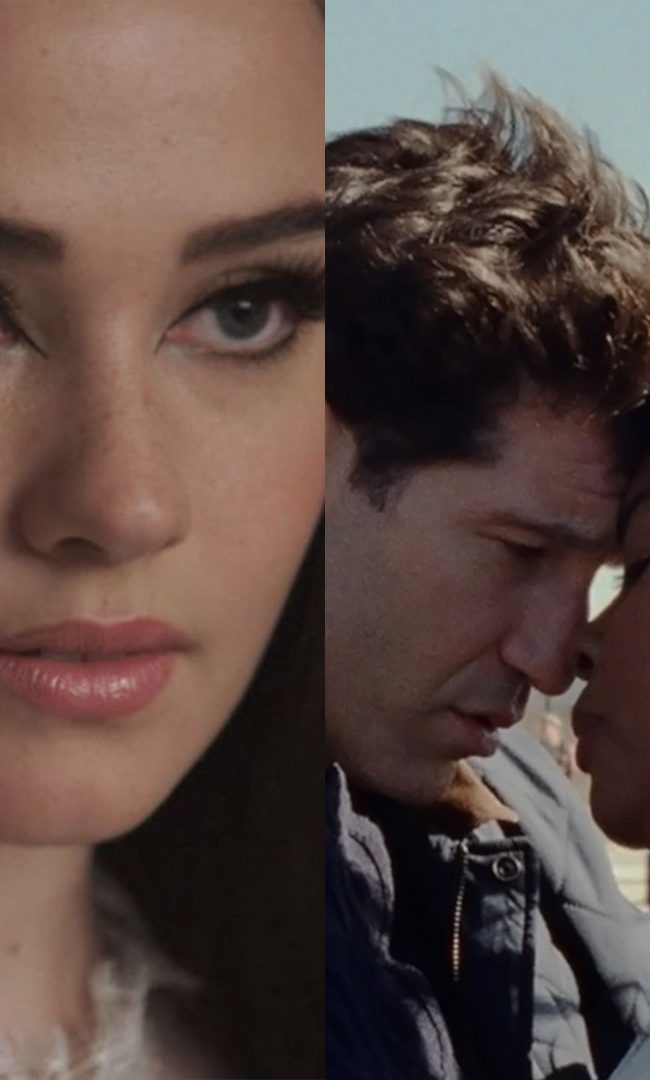A Conversation With Gregory Kohn, David Call and Eléonore Hendricks (NORTHEAST)
(Distributed by Tribeca Film, Northeast gets a long overdue week-long theatrical run at the reRun Gastropub from February 22-28, 2013, where Kohn, Call, and Hendricks are expected at various post-screening Q&A’s. For full details on dates and times, and to purchase tickets, go here.)
In his H2N review of Gregory Kohn’s Northeast, Vinay Singh writes this, among other things (read the full review):
At first glance, it would be easy to think that Gregory Kohn’s feature debut, Northeast, is about womanizing, of which Will does plenty. Or that it’s about New York City, because the grit and cacophony of the city almost seem to drip from the screen. Or that it is just another film about the well-documented, perhaps over-documented, post-collegiate malaise that tends to befall Gen Yers and Xers. Or even that it’s a film about nothing, as the characters almost seem to gravitate into the empty spaces around them and in their lives. To varying degrees, it is about all of these things. But, at its heart, it’s a film about relationships and, more so, the lack thereof. In this way, Kohn has painted one of the most accurate portrayals in recent memory of what “dating” is like in New York City today for the post-collegiate set.
The following conversation occurred after a recent taping of my radio show, Filmwax Radio, with Kohn and actors David Call and Eléonore Hendricks. [Full disclosure: Filmwax is co-presenting the film’s theatrical run at reRun with Tribeca Film.]
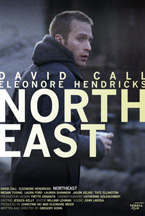 H2N: People are just going to get Northeast or they’re not. It’s a jagged pill, isn’t it?
H2N: People are just going to get Northeast or they’re not. It’s a jagged pill, isn’t it?
Eléonore Hendricks: You know, I got it on my second viewing.
H2N: Me too. Let’s just show the film a second time and skip the first. [Laughter]
Gregory Kohn: A buddy of mine was in a relationship with this girl and he saw my movie and was like, “You know, yeah, it was good.” You could tell he didn’t really like it. Then he and that girl broke up, he came to another screening and he was like “Dude, I really like your movie now.” [Laughs] I said, “I’m glad.” But he was in love. He didn’t really get the….
David Call: [Mock shock] “Why would you try to sleep with all these other girls?”
GK: “Yeah, I don’t understand. Why wouldn’t you just sleep with your girlfriend?”
DC: [Mock torment] “With the one perfect one! Who stepped on my heart!”
GK: Yes, ha ha, he became single and was dating and living in this bizarre world where you’re meeting people you kind of like, you kind of don’t…
DC: [Mock terror] Argh, God!
GK: That world. That’s why he said, “I get this movie now.”
H2N: Are you guys in relationships at the moment?
GK: Yeah, I met my girlfriend, I’d say, about a year before I started filming this.
H2N: And you’re still together?
GK: We are engaged.
EH: Oh, wow!
DC: Hey, congrats! She’s a good one.
H2N: Did you write it when you were single and then you met your fiancé?
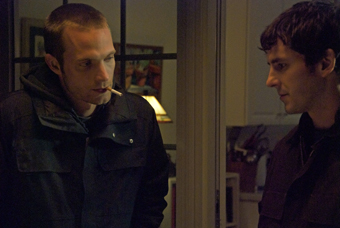 GK: Northeast went through so many incarnations. I wrote it while I was breaking up with someone, so I was in a heartbroken state. And then I couldn’t get the movie made for a while. When I began to get the movie made, I was dating. And as I was dating, the film changed to being something more like what it is now. I remember seeing a bunch of movies about relationships, like you were saying David. And they’re always told from this nostalgic point-of-view or people; from married people who are like “Ah, man, I miss being single.” Girls does a really great job of this and I think it’s amazing. Often this is portrayed in a comedic way but I wanted to make a movie that reflects what real life is like. This is what I saw, and I talked to my friends and this is what they were dealing with too.
GK: Northeast went through so many incarnations. I wrote it while I was breaking up with someone, so I was in a heartbroken state. And then I couldn’t get the movie made for a while. When I began to get the movie made, I was dating. And as I was dating, the film changed to being something more like what it is now. I remember seeing a bunch of movies about relationships, like you were saying David. And they’re always told from this nostalgic point-of-view or people; from married people who are like “Ah, man, I miss being single.” Girls does a really great job of this and I think it’s amazing. Often this is portrayed in a comedic way but I wanted to make a movie that reflects what real life is like. This is what I saw, and I talked to my friends and this is what they were dealing with too.
DC: Real life isn’t all clever quips and perfect monologues.
GK: Yeah, like where you meet some girl on the subway and the next thing you know you’re back in her room. And you’re like, “Who the fuck is this person… I don’t know who they are.”
DC: Then they turn out kind of crazy and you think, “What did I do!?”
H2N: That reminds me, if we had shown this one week earlier, it could’ve been on Valentine’s Day, it could have been the anti-Valentine’s movie of the year.
GK: That would’ve been sad.
EH: When is Valentine’s Day? I don’t know. I don’t do Valentine’s Day.
GK: What a bullshit holiday.
DC: Yeah the Hallmark Corporation actually created it in the ‘30s. There’s a four month gap between Easter and Christmas where they were not selling cards. “Let’s invent a holiday so we can sell cards.”
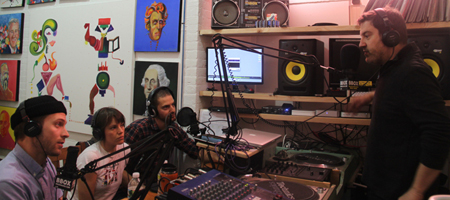 H2N: Northeast, in a way, is the anti-Valentine’s Day movie.
H2N: Northeast, in a way, is the anti-Valentine’s Day movie.
GK: I don’t know if it’s anti-Valentine’s Day.
DC: It’s for all of the single people on Valentine’s Day.
GK: Actually, another character in the movie that is sort of the heart of it… That’s Leah who’s played by a great actress named Megan Tusing.
H2N: Is that the dancer? Or the blonde?
DC: The blonde one who I leave at the very end.
GK: The one I elliptically come back to. In this weird way, it’s actually her story, her movie. It just happens to be told through David’s perspective, but she’s the one that’s gonna graduate from this story. You know she’s kind of being hurt by this guy. She’s the one that’s eventually going to move on and learn from this. You know, she’s the round character. The one that might change and might actually find a guy that really respects her. And I think what you were saying with Eléonore’s character, where they clearly had some sort of history, she’d already made that decision before the movie started. Now she’s in a position of being tempted. So, that’s what the purpose of the movie was. David’s character is flat and all the other people around him are actually being tempted. It’s really all the other characters’ stories of whether or not they are going to change.
H2N: Oh right, right. Well, somewhere in the description of the movie I did read that you knew more about the women than…
GK: Yes, that you know more about the other characters than you know about Will.
H2N: Can you talk about the actresses in Northeast? They’re wonderful. There’s the one you just mentioned, Megan.
GK: Yeah, Megan Tusing, who plays Leah.
H2N: Then there’s the dancer who comes home pissed off that one time.
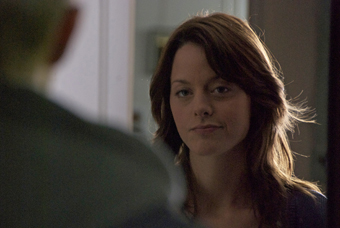 DC: Oh, that’s Lauren Shannon who plays Lauren.
DC: Oh, that’s Lauren Shannon who plays Lauren.
H2N: She’s terrific.
GK: Then there’s Laura Ford who plays the older woman, Caroline.
H2N: Don’t call her “older!” She’s my age. [Laughter]
GK: I would say that to her and she would be like, “Ugh, my heart is sinking.”
H2N: Is she single? I should date appropriate.
EH: She’s great. She’s so nice in that scene.
H2N: So good. So good. Yeah that’s what I was saying before. On my second viewing, it really made me think and realize just how special these performances are. Gregory, how did you write and direct those parts?
GK: I know this will sound so cheesy but that’s what I love more than anything about the process. I knew when I wrote this that the dialogue was not that important. There was another actor, Utkarsh Ambudkar [Roger in the film] who immediately had come off some sitcom and he was like, “You don’t need me to say the line.” He didn’t get that I was just like just say what you would say in this situation. When I re-watched the movie at some screening like two months ago, my favorite scene is actually between you two [referring to David and Eléonore], which I actually did not write. I knew what they were supposed to be doing…
H2N: … accomplishing. The scene on the back deck?
GK: They were out on the patio. I wanted that in a two-shot, and actually my AD Scott Larkin was like, “You should get a punch in.” He convinced me to punch in for a single of both of you. He earned every little bit of money that we paid him by that one moment because it was literally a scene of complete subtext that I had not written, that I had nothing to do with. Basically, Will was just asking her to fuck him and she’s saying, “I don’t know if I can do this now—I want to but I can’t.”
H2N: I didn’t get that.
EH: On the second viewing.
H2N: I didn’t get that on the second viewing either.
EH: Third viewing? [Laughs]
H2N: No, no I still felt like you were….
EH: … see it every single day of the week.
DC: By Friday you will.
H2N: Then that’s an interesting thing, a very interesting scene.
EH: What were you saying that you had picked up or not picked up?
H2N: No, Eléonore, I never got a moment where your character, Molly, gave in to Will, which is something I respected.
EH: Uh huh.
H2N: I wanted you to give in. I wanted that moment where you say to Will, “I want to but I can’t do it.” It’s so cliché. That doesn’t happen much of the time; the characters usually sleep together or have a kiss. What you did was exactly what really happens in life.
DC: Yeah, you’re subtly fishing, subtly fishing, and then you’re kind of like….
H2N: Finally you’re alone with her.
DC: Oh, and you’re not biting…
GK: [To Eléonore] You’re just smoking this cigarette. It was just amazing. You could just tell that everything was happening in that one scene and just to watch two actors do it at that point and create a scene like that, that’s when you’re just like fuck directing.
H2N: The net result is called good direction.
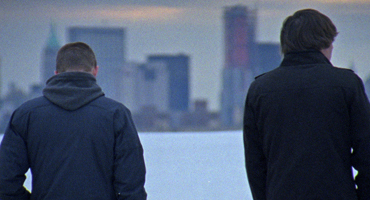 GK: No, all you’re doing as a director is just setting a comfortable mood. “Hey, I want to make sure everyone is comfortable.”
GK: No, all you’re doing as a director is just setting a comfortable mood. “Hey, I want to make sure everyone is comfortable.”
EH: And also just having the vision. A secure director working with you gives you a secure feeling because you have that license to allow yourself to feel. And it’s safe to feel, because you have the vision of it and you have these characters. [Pauses] It can be really hard working with….
DC: …with directors who are insecure. I love a director who knows what they want but doesn’t insist upon it. And that’s the thing that I loved about Greg: he knew exactly what he wanted and exactly what it was about.
GK: I had no idea how to get there!
DC: Yeah, but because you were secure enough in what you wanted I felt like you then had like the freedom to do things where we could improvise a scene. Or Scott could come up and say, “You know, I think it would be better; you might want to get this coverage.” I’ve worked with other first time directors who know what they want, but they think they have to project that to everyone. When people are like, “Well what if we change this line here?” “No! That’s the line. That’s the way you are going to say it.” “And you’re like, “Well, maybe we should like have an insert of this right here.” “No, we’re shooting this scene this way and this is my vision and this is how we are going to shoot it!” And that’s not a secure director. That’s somebody who doesn’t in fact trust [himself or herself] enough to trust other people.
GK: The funniest thing about that is that he says I’m secure and what’s funny is that I feel insecure. Because if you hear all these actors… Like, if you watch the ‘making of’ a Hollywood movie, they’re always saying they want a director who knows exactly what they want. And I’m that guy that sitting there raising my hand and saying, “I don’t know exactly what I want and I never will until I see it.”
EH: It’s allowing things to happen. It’s that trust that things should happen as they will. You have, you’re the one who is dictating the scene. It’s your film but you allow it to breath and to live.
DC: And you allow other people to bring things too. I worked with this guy…
GK: You guys aren’t robots.
DC: I worked with this amazing guy who was Harris Savides’ 1st AC. He’s worked with Fincher and Gus Van Sant, all these guys. And he was saying that Fincher’s very much like, “This is exactly what we are going to shoot. Here’s my shot list. Here are the angles. Here are the lenses. Here is the film stock. Here is the lighting set up.” Like, this is it and he’s got it completely figured out to the point were everyone just follows him cause he’s the smartest guy in the room. But, he was like, with Gus Van Sant, they were doing Elephant, with those like long tracking like shots and right as they were getting to the end, this guy Chris [Blauvelt] was pulling focus and he tripped and the freaking focus puller went flying out of his hands. He was like, “Oh, my God!” And he starts like trying to crawl up and grab it and then Gus was like, “No, no, no.” And, so, the whole end of the shot the character goes out and the whole thing gets like really soft. And then the camera comes in and it comes together. It ends and then Gus goes, “Oh, that was really beautiful! I didn’t even think of that.” [Laughter] “I didn’t even think of that. That’s great!” And I think that’s in the film and he’s just someone who’s open to like, “Oh yeah, I knew I wanted this thing but that’s a cool thing that happened, so lets do that instead.”
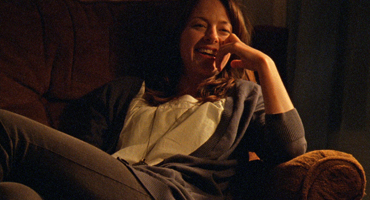 GK: I don’t know, I think maybe that’s the reason we all get drawn to this art form. It is so hard to go through life thinking that, well, whatever will be will be. There are so many things in the world that you can’t control. That’s very hard for some people and I think when you are trying to make something that you want control of, I think that can be very difficult just as it is the same way in life. To just let go, let what happens happen. And maybe somebody has done that and has created something absolutely terrible, but…
GK: I don’t know, I think maybe that’s the reason we all get drawn to this art form. It is so hard to go through life thinking that, well, whatever will be will be. There are so many things in the world that you can’t control. That’s very hard for some people and I think when you are trying to make something that you want control of, I think that can be very difficult just as it is the same way in life. To just let go, let what happens happen. And maybe somebody has done that and has created something absolutely terrible, but…
DC: Oh, sure! I mean I think you have to marry that. Yeah, you can’t be lazy. You gotta have intention.
EH: You’ve gotta have intention. You’ve done all this work on your own to set yourself up for the process of it, then you allow the process to happen.
GK: Which is a scary thing.
— Adam Schartoff








